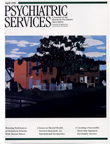Self-reported effects of alcohol use on symptoms of schizophrenia
Abstract
Forty-two acute inpatients with schizophrenia, 23 of whom had a past or current alcohol use disorder, were given a structured interview that focused on reasons for alcohol use and changes in perceived effects of alcohol on psychiatric symptoms from the first episode of illness to the current episode. Drinking for sociability or celebration decreased over time, while drinking to relieve depression or problems increased. Subjects who experienced hallucinations, paranoia, or both significantly more often reported an increase in these symptoms after drinking. Subjects with an alcohol-related diagnosis were significantly more likely than those without such a diagnosis to cite relief of depression and problems or worries as a reason for alcohol use.
Access content
To read the fulltext, please use one of the options below to sign in or purchase access.- Personal login
- Institutional Login
- Sign in via OpenAthens
- Register for access
-
Please login/register if you wish to pair your device and check access availability.
Not a subscriber?
PsychiatryOnline subscription options offer access to the DSM-5 library, books, journals, CME, and patient resources. This all-in-one virtual library provides psychiatrists and mental health professionals with key resources for diagnosis, treatment, research, and professional development.
Need more help? PsychiatryOnline Customer Service may be reached by emailing [email protected] or by calling 800-368-5777 (in the U.S.) or 703-907-7322 (outside the U.S.).



